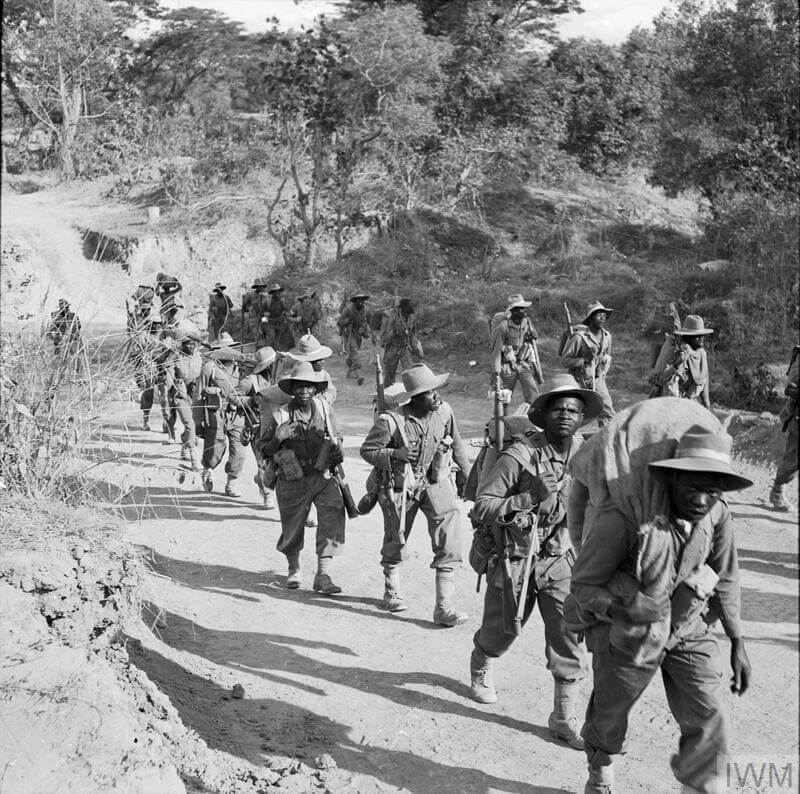
Voices of Veterans – VJ Day 80
During the Second World War, more than half a million African soldiers, porters, drivers and labourers were enlisted to serve across the globe. From the jungles of Burma to the deserts of North Africa, men from across the continent stood shoulder to shoulder with forces from across the Commonwealth.
Image: IWM (SE 1884)
Though their contributions were critical to the Allied victory, these veterans were seldom celebrated, and their voices rarely preserved. Now, decades later, we honour them not just for their service, but for their humanity; for the lives they lived, the memories they carried, and the stories and lessons they have to share.
This Kenyan and Tanzanian oral history project is a tribute to those veterans who returned home bearing both pride and pain, and their fellow servicemen who did not.
On this VJ Day, as we mark the end of the war in the Pacific and the broader conclusion of the Second World War, we also make space for these remarkable men to speak in their own words, and for us to listen.
Some 90,000 East and West African troops served during the Burma Campaign. Amongst them was Tinga Matiku, from Tanzania.
Born in 1926, Tinga enlisted in 1943 at the age of 17, and served with the East African Engineers. In describing his experiences, Tinga spoke of his initial training in Kenya, and after saying farewell to his family, he travelled alongside others raised from across East and West Africa to Sri Lanka, India, and then into Burma. After three years’ service, often in extremely distressing situations, Tinga returned home in 1946.
When interviewed as part of our ongoing efforts to tell the stories of those who fought and died from across the Commonwealth, Tinga spoke of his pride in serving, and his desire for more to know about his role, and that of his comrades, in the war.
By recording and sharing his testimony, we are committed to ensuring this is the case. In the above video, taken from a longer oral history interview, Tinga speaks of his time in the army, what led him to join, and the traumatic effects of war.
About the Oral History Project
This project records and shares personal testimonies of often overlooked veterans from the Second World War.
With a grant from the Commonwealth War Graves Foundation and in collaboration with the Defence Forces Comrades Association, interviews were conducted across Kenya between November and December 2024. Kenyan students trained in oral history techniques by a British Library and Oral History Society accredited trainer conducted these interviews. Student skills development was also supported through the project.
These interviews are invaluable, capturing the experiences of a dwindling number of veterans whose stories are largely unknown.
"These interviews are of immeasurable value, as these veterans are amongst the small number now remaining who can speak of their experiences in the Second World War.
Experiences which, for a variety of reasons, are not often widely known. By undertaking these recordings we can now ensure that the actions of these men, as spoken in their own words, will be preserved and can be given a greater voice than ever before.
Their stories, and those of their fallen comrades, will always be remembered."
Dr John Burke, Senior Research Historian, CWGC.
Discover veterans' stories
Arot Owade
Arot Owade, from Arujo in Homa Bay county, Kenya, served as a mechanic during the Second World War. After undertaking training in Kabete, he was initially deployed to Ethiopia when he saw action during the Battle of Gondar (13-27 November 1941). Such was the impact of this that ‘I named my daughter after that location because our side won’. Following this, Arot was then deployed to Burma ‘because I was the one who fixed the war vehicles that transported the soldiers.’
On his experience in Burma, Arot stated:
"The battle was intense in Burma, I wish someone else who we were with during that time was here so we both talk about what were saw in Burma, because some of the experiences are very horrific…. On our way to Burma we passed through India and I recall a ship that docked after us was shot at by the Japanese soldiers, several people died and we could see their bodies floating above the water. We survived by a whisker because we could have been their target as well. One thing for sure, in the battlefield, you act like you got no blood running through your veins. Death can knock at any time. I saw horrible things that I wouldn’t want to talk about."
John Achaga
John K. Achaga, from Vihiga County, Kenya, volunteered for service in 1942. After undertaking his initial military training in Kenya, John was then selected to undertake more specialised training to become a signal operator:
"After the training, it was now time to be taken to India. They said this one: No word can bypass him, and no message can bypass him. They chose me, and a total of five of us were selected. We were 16 years old. We missed nothing. I was fortunate when we went to the training and was number one. We left Nairobi with the General. I was then in the General’s office in India. Every detail from the 33 battalions was recorded in the General’s office. He sent me messages, and I received them from the 33 Battalions. They were being transmitted and recorded now and then. That was a signal operator, no joke. From 7 AM to 1 PM, rest a little bit and come until 8 PM, and the other operator comes back at 8 PM, works there at night, and leaves in the morning. We were only two operators. We worked in shifts."
John spoke of the exhausting nature of the work, as ‘there was no rest once you set your handset in your ears. We were not relieved, so there was no rest until your shift ended’. Given the nature of his work, John described receiving messages from the front of ‘10, 30, 50, 100 deaths daily. In our camp, no people died. I never felt emotional; I got used to it and had no time to be emotional’. In this, John stoically added that ‘I just recorded deaths. The military (askaris) were the ones who faced the challenges.’ After the war, John returned home in March 1946, got married in 1953, and had 13 children.
Listen to our VJ Day archive
AROT OWADE
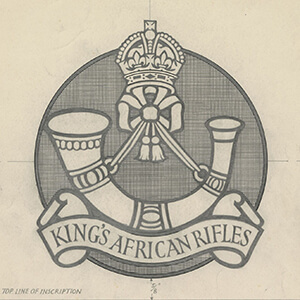
Translated:
KIPULA MUSILI PHILIP
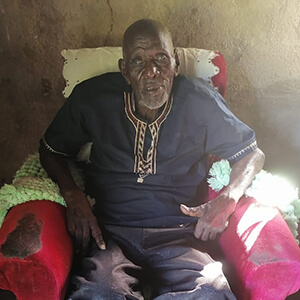
Translated:
MATHENGA NGWIYO
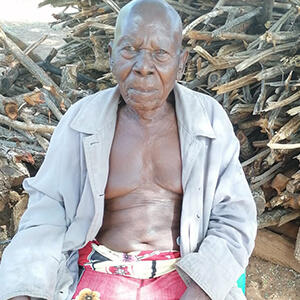
Translated:
MUTEMI NZUNZA
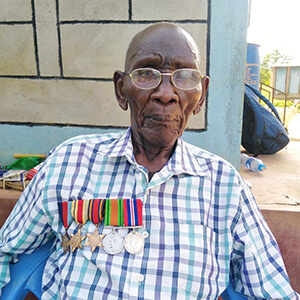
Translated:
NDAMBUKI KIBUBO

Translated:
PETER MBAI KAKUTO
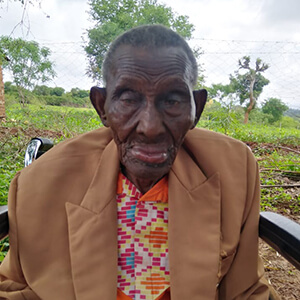
Translated:
SILFANUS ANDHOGA ONGANY

Translated:
KIOKO NDOLO
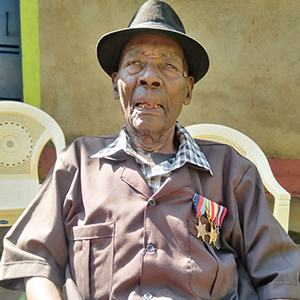
Translated:
RICHARD OGENGA OMARE

Translated:
MWALIMU NGULA
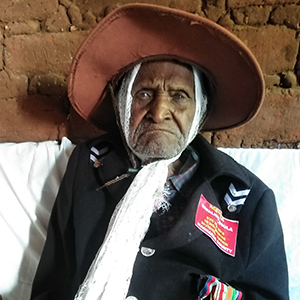
Translated:

